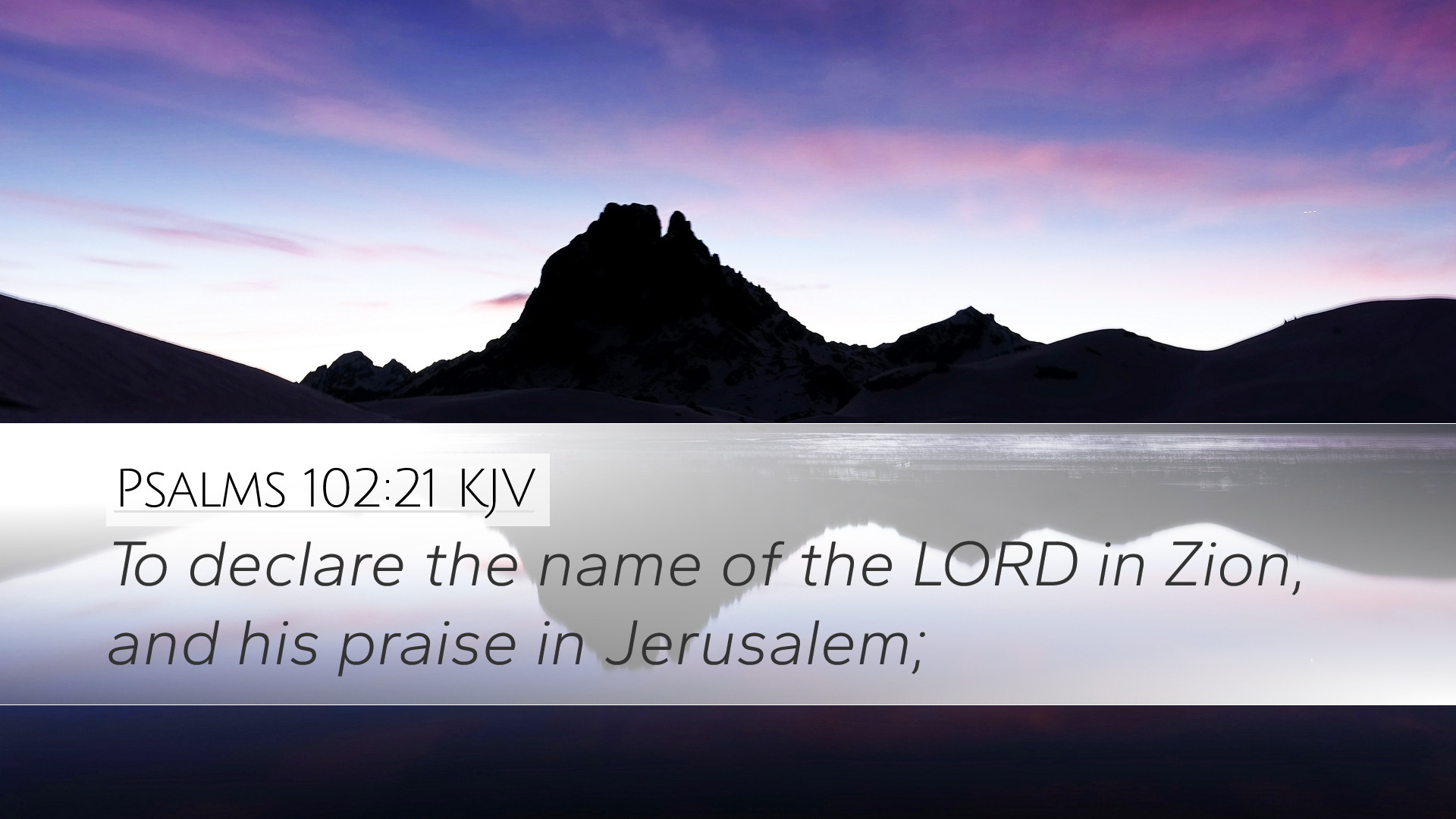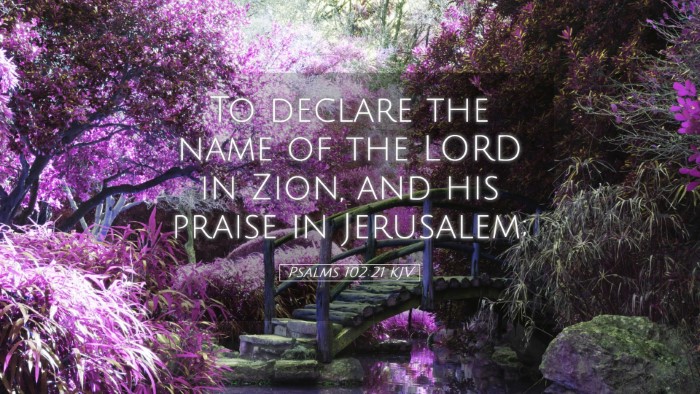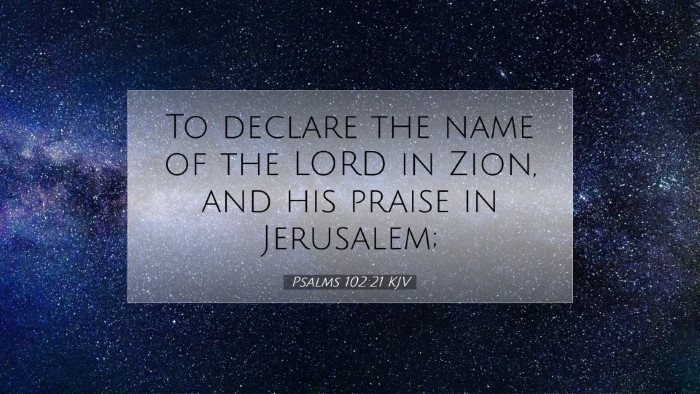Commentary on Psalms 102:21
Verse: "To declare the name of the Lord in Zion, and his praise in Jerusalem;" - Psalms 102:21
Introduction
Psalms 102 is recognized as a penitential psalm, often associated with affliction and deep distress. The psalmist expresses a profound yearning for God's presence and deliverance. In verse 21, there is a pivotal emphasis on declaring God's name and proclaiming His praise, particularly in Zion and Jerusalem. This verse serves as a strong exhortation that resonates with themes of worship, community, and the important role of remembrance in the life of faith.
Insights from Matthew Henry
Matthew Henry provides a rich commentary focusing on the psalmist's desperation for divine intervention. He notes that the primary purpose of the proclamation of God's name is to establish the glory and holiness of God among His people.
- The Importance of God’s Name: Henry emphasizes that God's name signifies His character, attributes, and the covenantal relationship established with Israel.
- Sion and Jerusalem: These places are symbolic; Zion often refers to a spiritual state as much as a geographic location, representing the ideal of God's dwelling among His people.
- Community Worship: The declaration of God’s name is not merely individual praise but is to be understood as communal; worship should unite the congregants in acknowledgment of God’s majesty.
Insights from Albert Barnes
Albert Barnes expands on the implications of declaring the name of the Lord, suggesting that this act serves several important functions within the community of believers.
- A Call to Testify: Barnes interprets the act of declaration as a call to testify about God's faithfulness, sovereignty, and goodness, particularly in the context of suffering.
- The Context of Zion and Jerusalem: He further elucidates that Jerusalem, the geographic center of Jewish worship, serves as a foundational location for the realization of God's salvific initiatives.
- The Role of Praise: For Barnes, praise is not passive but an active declaration that brings God’s presence into the midst of His people, building faith and community strength.
Insights from Adam Clarke
Adam Clarke adds a broad theological perspective on the significance of the psalmist's intention to declare God's name. His commentary underscores the depth of this acknowledgement in a worship context.
- Theological Depth of Praise: Clarke connects worship to a theological understanding of who God is, emphasizing that praise must be grounded in a knowledge of God's nature.
- Historical Context: He relates this verse to the historical experiences of Israel, where Zion is not only a physical location but a representation of unity with God in all circumstances.
- Exhortation to Action: Clarke urges believers to see praise as a duty, a form of worship that stems from gratitude and acknowledgment of God's providence, particularly in the face of struggles.
Theological Implications
This passage invites deeper theological reflection for pastors and theologians regarding the nature of worship and its communal aspects. The psalmist's focus on Zion and Jerusalem signifies a locale imbued with history, identity, and purpose; it challenges believers today to think about how they engage in worship in their own contexts.
- The Declaration of God’s Name: A crucial theological element that calls the faithful to recognize God's authority and majesty, making worship a transformative experience.
- Communal Worship: This declaration fosters community identity and strength, emphasizing that the praises of God should be central in the life of the church as a collective family.
- Hope in Distress: Given the psalm's context of affliction, this proclamation functions as a symbol of hope and resilience in adversity, allowing for a collective acknowledgment of God's promises.
Pastoral Applications
For pastors, this verse serves as a guide for preaching on worship and the nature of communal praise. Emphasizing the importance of declaring God's name can lead to enhanced worship experiences in congregations.
- Teaching the Congregation: Pastors can encourage congregants to be mindful of the power of praise in their personal and corporate worship settings, teaching them the significance of declaration.
- Creating Worship Experiences: Incorporating moments that highlight the name of God in worship, such as through scripture readings, hymns, and prayers, can help foster a deeper connection for the congregation.
- Encouraging Testimonials: Sharing personal testimonies during services can create space for declaring God’s work and thus strengthen communal faith.
Conclusion
Psalms 102:21 encapsulates a vital aspect of the believer's life—declaring and praising the name of the Lord. The insights from historical commentaries coupled with the psalmist's intent create a rich tapestry for reflection on communal worship, the nature of God, and the importance of acknowledgment in our faith journeys.


